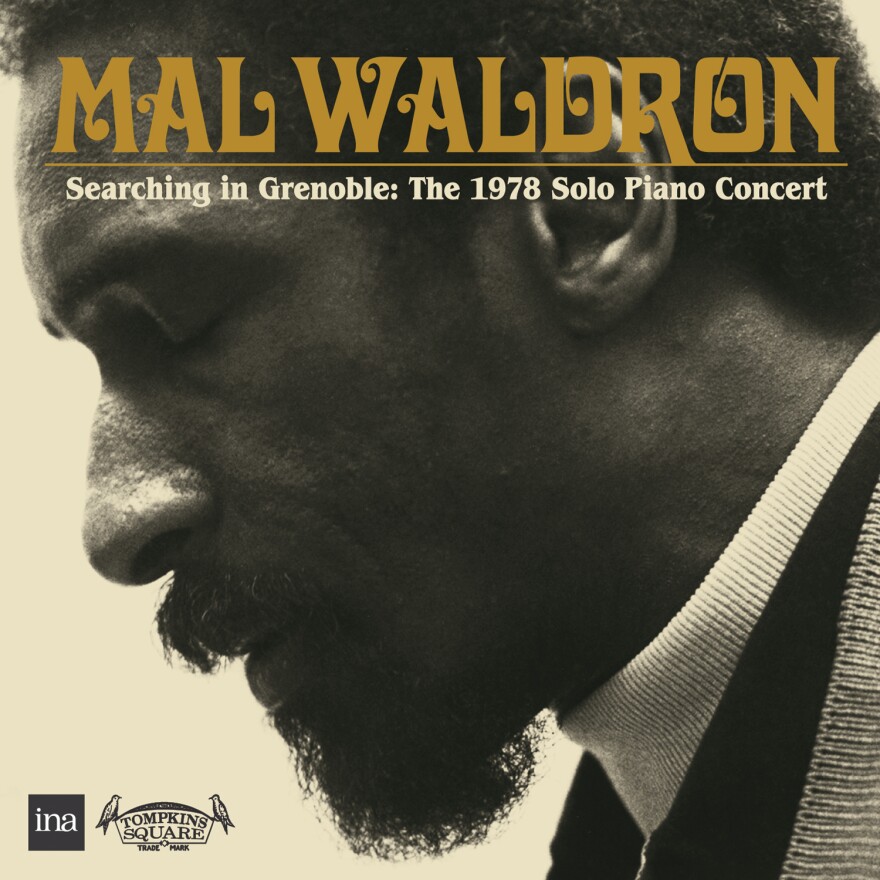Mal Waldron's body of work as a solo pianist is formidable, both in quality and quantity. While many jazz fans are familiar with his work as a sideman in the 1950s and '60s — behind the likes of Charles Mingus, Eric Dolphy and Jackie McLean — his output as a soliloquist occupies a deeper and more enigmatic mode of inquiry.
A dozen years ago, Ethan Iverson wrote a fond appreciation of Waldron that acknowledged this truth, noting that his best music "has a darker side that’s not decipherable in sense-based or spiritual terms. H.P. Lovecraft’s word unnamable might be appropriate. The piano playing seethes and burbles without coming to a climax."
Waldron left plenty of evidence for this interpretation; his solo album Free at Last was the inaugural release on ECM Records, and solo piano was a regular format in the latter part of his career. He knew how to make a recital feel both familiar and strange. A prime example of this duality is the stunning concert he played at the Maison de la Culture Grenoble in France on March 23, 1978, soon to be released on Tompkins Square.
Searching in Grenoble: The 1978 Solo Piano Concert, produced by Zev Feldman and Josh Rosenthal, will be released on Sept. 23. WBGO is proud to premiere its first single, a masterly reinterpretation of Waldron's own best-known composition, "Soul Eyes."
A certifiable jazz standard, "Soul Eyes" is most famous as a vehicle for John Coltrane, who featured the song on his album Coltrane in 1962. Waldron actually composed the ballad with this purpose in mind — "I liked Coltrane's sound and I thought the melody would fit it," he once told John S. Wilson of the New York Times — and he first recorded it with Coltrane on the 1957 Prestige release Interplay for 2 Trumpets and 2 Tenors.

Waldron belonged to a generation of jazz musicians who sought refuge, and a base of operations, in Europe. (As jazz historian Ashley Kahn recently observed here, that's a continuing story.) In his Grenoble concert, Waldron approaches "Soul Eyes" first as a piece of repertory, moving through the melody with decorative embellishments, in an easeful rubato. He begins to take more liberties after a full recitation of the theme, at 1:15. Establishing a tempo and a mood, Waldron reaches at first for the modern jazz dialect of Bud Powell. Eventually he lands on a circular vamp, wringing every possibility out of the form in a way that should ring familiar to any Keith Jarrett fan.
There is, of course, much more to Searching in Grenoble than this performance, just as there's more to Waldron than his most famous song. Still, there's something apt and ironical about "Soul Eyes" introducing this latest posthumous release. When Waldron died in 2002, the song was named in the headline of his obituary in the New York Times. Now it resurfaces on a recording that, as Adam Shatz writes in the liner notes, "should help to restore — and, one hopes, elevate — his place in jazz history."
Mal Waldron's Searching in Grenoble: The 1978 Solo Piano Concert will be released on Tompkins Square Records on Sept. 23. Preorder it on Amazon or Bandcamp.



